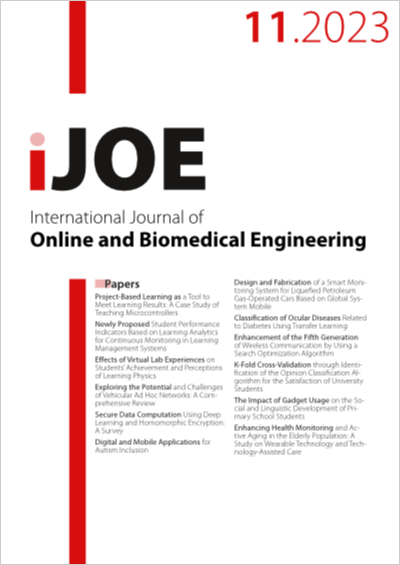Enhancement of the Fifth Generation of Wireless Communication by Using a Search Optimization Algorithm
DOI:
https://doi.org/10.3991/ijoe.v19i11.41939Keywords:
Crow Search Optimization Algorithm, 5G, Resource allocation, Energy Efficiency (EE), Spectral Efficiency (SE)Abstract
The fifth generation of cellular networks (5G) is seeing a rapid expansion, and energy efficiency (EE) is a hot topic of discussion. It has been found that both EE and maximum spectral efficiency (SE) are desired. They are conflicting objectives, meaning that maximizing one will decrease the other. To tackle this issue, strategies for spectrum and energy optimization have been proposed, as well as green communication plans that aim to minimize the tradeoff between SE and EE. Research has been conducted on EE-oriented resource allocations to reduce energy usage while ensuring high-quality results. To do this, the Crow Search Optimization Algorithm (CSA) has been used. Simulation results have demonstrated that this proposed method is effective in finding the most suitable solution.
Downloads
Published
How to Cite
Issue
Section
License
Copyright (c) 2023 Haider TH.Salim ALRikabi, Mohammed Jawad Al_Dujaili, Ghanim A. Al-Rubaye, Ibtihal Razaq Niama ALRubeei

This work is licensed under a Creative Commons Attribution 4.0 International License.



